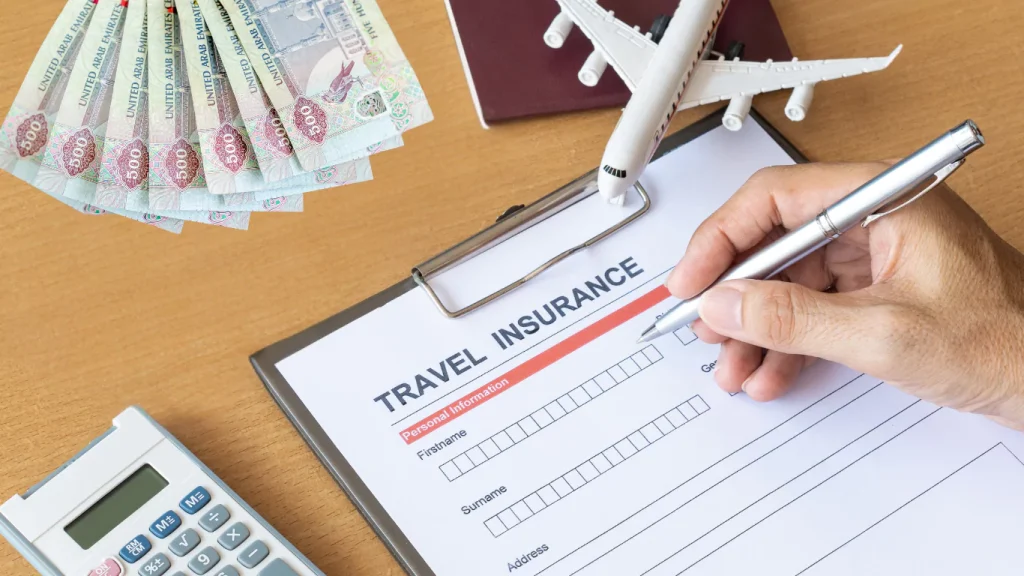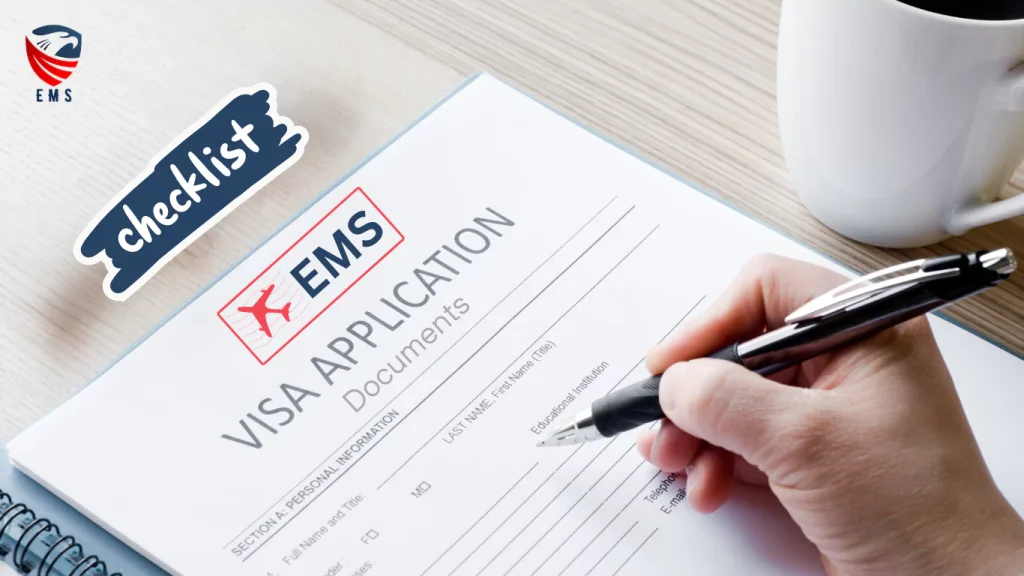Introduction
A visa is an important document permitting individuals to legally stay, enter, or transit through a foreign country. While the procedure may differ depending on the type of visa and the country of destination, one worldwide factor is remnant documentation.
The visa application procedure usually needs selective supporting documents to make sure the applicant fulfills the criteria for entry. Giving the right documents grow the chances of visa approval and averts the possibility of delays or rejections.
Significant Visa Application Documents
Below you will get the list of visa application documents as follows:
1. Visa Application Form
The visa application form is the crucial document that begins the procedure. It gives the consular authorities complete information about the applicant, incorporating personal details, reason for travel, duration of your stay, and past travel history.
In most cases, this form is accessible on the embassy or consulate website of the destination country. Ensure that all information is exact and aligns with other documents in the application.
2. Passport
A valid passport is important when applying for a visa. The passport must usually meet specific criteria:
- Validity: Many countries need your passport to be valid for at least six months beyond your expected stay.
- Blank Pages: You will be required to have at least one or two blank pages for the visa stamp.
- Previous Visas: Some countries may need you to give copies of previous visas to display travel history, especially to destinations where entry visas were needed.
If your passport does not complete the validity criteria, you may be required to renew it before applying for the visa.
3. Photographs
Most visa applications need a passport-sized photograph. The photograph must comply with strict things related to size, facial expression, and background color. Common requirements involve:
- No head coverings (except for religious reasons)
- A neutral expression
- A white background
- No eyeglasses (in some instances)
It is advised to get your photograph taken at a professional studio with a visa photo description for your destination country.
4. Proof of Travel
Many consulates need applicants to submit proof of their travel plans. This is usually in the form of:
- Ticket Booking or Flight Itinerary: Even if a paid ticket is not needed, a confirmed itinerary from an airline may do so. It specifies the dates of entry and departure, which aid the authorities confirm your specified stay duration.
- Accommodation Bookings: Similarly, proof of your hotel reservations or other accommodation arrangements for the duration of your stay is usually needed. An invitation letter and proof of address may be required for those staying with family or friends.
Giving confirmed travel plans assures the consulate that you plan to return home after your visit.
5. Proof of Financial Means
To showcase that you can support yourself during your stay, you must give proof of financial stability. This need aids consulates avert applicants from becoming a load on the host country’s resources. Common ways to show financial means incorporate:
- Bank Statements: Usually, consulates ask for bank statements from the past 3 to 6 months. These should showcase daily income and a healthy balance.
- Income Tax Returns (ITRs): Some consulates ask for copies of ITRs to confirm that the applicant has a continuous income source.
- Pay Slips: If employed, giving pay slips from the last few months can build up your application.
- Sponsorship Letter: If someone else is sponsoring your trip, such as a family member or employer, they will required to give a sponsorship letter along with their proof of income.
Having sufficient financial backing makes sure the applicant will not overstay or look for unauthorized employment.
6. Invitation Letter
If you are visiting friends or family or traveling for a business or work-related purpose, an invitation letter may be essential. The invitation letter should incorporate:
- Full name and contact details of the host
- Host’s residency details in the destination country
- Purpose for the invitation and duration of stay
- Applicant’s relationship to the host
The letter should be signed by the host and, in some cases, notarized. It may also need to be accompanied by proof of the host’s legal status, such as a copy of their passport or visa.
7. Educational or Employment Documents
Educational or Employment documents give proof of your current occupation and illustrate why you may be required to return home after your visit. These documents might incorporate:
- Letter from Employer: A letter from your present employer validating your salary, employment status, and length of employment. It should also display that you have approved leave for your travel dates and that you are anticipated to return to work.
- Student Enrollment Letter: For students, a letter from the educational institution confirming your enrollment number and course duration is needed.
- Business Documents: For business owners or self-employed individuals, business registration papers or financial documents are required.
Giving this documentation shows that you have a connection to your home country, averting the risk of overstaying.

8. Travel Insurance
In many cases, travel insurance is a needful requirement. The policy must:
- Involve minimum coverage
- Cover your entire duration of stay
- Cover accidents, medical emergencies, and repatriation
Travel insurance gives a safety net for unexpected medical expenses abroad and reassures the host country that you will not depend on its healthcare system.
9. Criminal Record Certificate
Some countries need applicants to give a police clearance certificate or criminal record certificate to show that they have no criminal background. This document can generally be gained from your local police station or a government agency. According to the destination, this certificate may be required to be translated into the official language of the host country and authenticated.
10. Proof of Civil Status
In some cases, you may be needed to give documents correlated to your civil status, such as:
- Divorce Papers
- Marriage Certificate
- Birth Certificates for Children
These documents might be required, specifically when applying for family reunification visas or for selective countries where civil status documents are needed for issuing visas.
11. Visa Fee Payment
A non-refundable visa fee is generally needed as part of the application procedure. The fee differs according to the visa type and the country you are visiting. Payment ways may involve bank transfers, credit cards, or cash, depending on the consular or visa center. Keep the payment receipt, as you may be required to give proof of payment when submitting your application.
12. Additional Requirements for Specific Visa Types
According to the type of visa you are applying for, add-on documentation may be needed. For example:
- Work Visas: Proof of job offer, employment contracts, proof of job offer, and work permits are common needs.
- Student Visas: Proof of tuition payment, university admission letters, and proof of enough funds to enclose living expenses throughout your studies.
- Family Reunion Visas: Proof of relationship (birth certificates or marriage), proof of the sponsor’s residency status in the destination country, and the sponsor’s financial documents.
- Transit Visas: Proof of onward travel (e.g., flight tickets to the next destination).
Conclusion
Doing the correct documentation is important when applying for a visa. While the proper needs differ by visa type, country and the documents given above form the foundation for most visa applications.
It’s crucial to double-check the selective needs of your destination to make sure all documentation is exact, complete, and up to date. A well-prepared visa application grows the likelihood of acceptance and ensures a seamless travel experience.
Always consult the embassy or consulate website of the destination country for the latest current document needs and procedure guidelines or get in touch with EMS Visa Consultant who has a team of experts from whom you can get your short-term visit visa to any other variety of visa that to in a hassle-free way.



